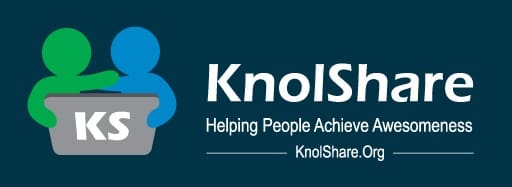Frequently Asked Questions (FAQ)
How Do You define Agile?
- Agile simply means to be nimble and responsive to change.
- At KnolShare, agile is intentionally responding to change caused by opportunities and threats. Change is satisfied by delivering measurable outcomes that can be realized and shared.
When People Say Deliver Value, What Do They Mean?
- Value means one or more measurable outcomes that can be realized and shared internally or externally to the organization.
What value will my organization receive from practicing lean and agility thinking?
The core value is the pursuit of waste elimination during and after the value delivered to customers.
Key values include:
- Alignment of leaders and producing teams on common goals
- Increased speed and flexibility for teams
- Enhanced response to customer needs
What is agile all about?
- In general, agile is about being nimble with the ability to respond to change.
- For business, agile provides the ability to adapt and innovate faster.
- In technology, agile is based on values, principles, and a few frameworks that allow teams to deliver quality software using iterative practices.
What is an agile coach?
- An agile coach enables people to achieve awesomeness by discovering blind spots and strengths to improve by going deep and forward in a specific area. The agile coach will use different coaching frameworks to guide and support people through their journey. The agile coach works with Scrum teams, stakeholders, and management to improve performance and outcomes.
What is Business Agility?
- Business Agility is an optimized organization capable of responding to market dynamics to take advantage of opportunities and threats that enables business and individual growth. We use the lean principle of “Optimize the Whole” to indicate all value streams are optimized to maximize value, minimize waste, and increase flow.
How do I quantify the return on investments from a lean and agile culture transformation?
The measurement should be evaluated through enterprise outcomes, reduced risks, and optimized investments.
Enterprise Outcomes: Evaluate the systems and organization performance using the following metrics:
- Engagement
- Quality
- Progress
- Satisfied Customers
Reduced Risks: Optimize quality and collaboration for each delivered outcome
- Quality built into the development process
- People are transparent up, down, and across
- Eliminate waste
Optimized Investments: Focus on the activities that produce the greatest value
- 4X ROI value and product rationalization
- Improved resource retention
- An emerged culture of learning
- Increased sustaining and disruptive Innovations
What is the benefit of renewing my CSP through obtaining SEUs?
- The Scrum Alliance Certified Scrum Professional (CSP) must obtain 40 Scrum Education Units (SEU) every two years to demonstrate professional experiences and activities.
- Please visit this CSP link to learn more about the CSP requirements.
What are the benefits to renew my PMP or PMI-ACP?
- The Project Management Institute (PMI) prescribes that project management professionals with the PMP or PMI-ACP certification must demonstrate professional experiences or activities that enables them to apply changing project management trends.
- Please visit the PMI Maintain Certification Link for more details.
- You invested many hours to achieve your PMP and / or PMI-ACP certification, it is highly recommended to maintain your PMP or PMI-ACP certification.
What is a Professional Development Unit (PDU) and why would I need them?
- PDUs are necessary for maintaining the Project Management Institute (PMI) certified professional credentials. They are a part of PMI's Continuing Certification Requirements (CCR) program.
- Learn more by visiting PMI Ways to Earn PDUs.
What is a Scrum Education Unit (SEU) and why would I need them?
- SEUs validate your continued participations and proficiency in the fundamental practices of Scrum to maintain or improve one or more of your certifications.
- Learn more by visiting Scrum Alliance Scrum Education Unites (SEU).
